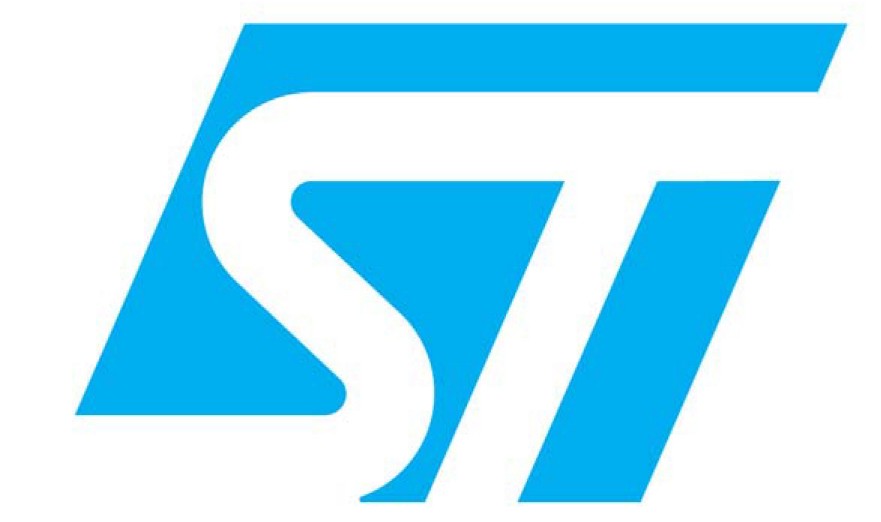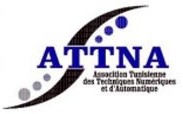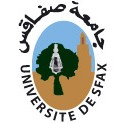
|
|
|
The 23rd International Conference on Microelectronics ICM 2011 (IEEE co-sponsored, www.ieee-icm.com) will be held in Hammamet, Tunisia, 19-22 December 2011. Three proposals for special sessions have been accepted: Special Session 1: Distributed Information Processing in Wireless Sensor Networks Special Session 2: RFID Technology and Applications Special Session 3: Reliability of System on Chip (SoC)
Important Dates
Special Session 1: Distributed Information Processing in Wireless Sensor Networks Short description: This special session will focus on recent advances in distributed signal/image processing in wireless sensor networks. Over the past few years, wireless sensor networks received tremendous attention for monitoring physical phenomena and for target tracking in a wide region or a critical infrastructure under surveillance. With such systems, the automatic monitoring of an event or an incident is based on the reliability of the network to provide an efficient and robust decision-making. Applying conventional signal/image techniques for distributed information processing is inappropriate for wireless sensor networks, since the computational complexity scales badly with the number of available sensors and their limited energy and memory resources. For this purpose, collaborative information processing in sensor networks is becoming a very attractive field of research. Organizer biography:Prof. Hichem Snoussi received the diploma degree in electrical engineering from the Ecole Superieure d'Electricite (Supélec), Gif-sur-Yvette, France, in 2000. He also received the DEA degree and the Ph.D. in signal processing from the University of Paris-Sud, Orsay, France, in 2000 and 2003 respectively. He has obtained the HDR degree from the University of Technology of Compiègne in 2009. Since 2010, he is Full Professor at the University of Technology of Troyes. His research interests include Bayesian techniques for source separation, information geometry, differential geometry, machine learning, robust statistics, with application to brain signal processing, astrophysics, advanced collaborative signal/image processing techniques in wireless sensor/cameras networks. Since January 2011, he is leading the research group "Risk Management of Complex Systems and Networks" of the CNRS STMR UMR Laboratory. He is in charge of the regional research program S3 (System Security and Safety) of the CPER 2007-2013 and the CapSec plateform (wireless embedded sensors for security). He is the principal investigator of an ANR-Blanc project (mv-EMD), a CRCA project (new partnership and new technologies) and a GDR-ISIS young researcher project. He is partner of many ANR projects, GIS and strategic UTT programs. He is author of more than 100 research papers in journal and international conferences. He is member of organizing and program committee of many conferences. He obtained the national doctoral and research supervising award PEDR 2008-2012. Click Here for online submission
Special Session 2: RFID Technology and Applications Description: RFID (Radio Frequency IDentification) technology bridges two technologies in the area of Information and Communication Technologies (ICT), namely Product Code (PC) technology and Wireless technology. This broad-based rapidly expanding technology impacts business and society. According to CISCO, this technology gives retailers end-to-end product visibility, helping them to reduce costs significantly and differentiate themselves from competitors. Moreover, RFID improves customer satisfaction and increases sales. RFID empowers people to make better decisions, improved data accuracy and better inventory management. With support from USA defence department and major companies including IBM, Wal-Mart, and Procter & Gamble, RFID is incessantly gaining ground (see CISCO RFID Solutions in CISCO Web site). Still, the technology is still maturing and most deployments are in the pilot phase. In this context, the special session presents a contribution to maturing this technology and opening the horizon of its applications. The Chairs and organizer of the Special Session on “RFID Technology and Applications” are soliciting technical papers for oral presentation at the IEEE International Conference on Microelectronics (ICM 2011). This session is dedicated on the latest accomplishments, future directions and innovations exclusive to RFID Technology and its applications in various domains: Health, Education, Industry, Energy, Services, Government. The Scope of this Special Session includes all aspects related to original design, modeling & implementation for the following subjects, but not limited to: Technologies and Systems:
Applications and Business:
Organizers
Click Here for online submission
Special Session 3: Reliability of System on Chip (SoC) Description: With ever shrinking area and higher-density circuits, the issue of reliability in complex System on Chip (SoC) design is set to become an increasingly challenging issue for researchers as well as for industry. The functioning protection of a SoC from the effects of soft errors is difficult; available solutions often incur significant penalties in area and performance and are still not totally effective. Even when solutions deliver the anticipated error detection facilities, error correction remains hugely complex. Soft errors can be caused by permanent faults (for example collages or mistakes delay) and/or transient faults. They can have internal origin (eg, inductive noise) or external (for example particle impacts: single-event upsets). Today there is a strong need to design methods that define architecture of a SoC as safe as possible against transient faults. The problems of transient faults in the memory are addressed effectively by the use of error correcting codes. The case of transient faults in the logic is more difficult. Two families of approaches are possible: either the redundancy of logic or the detection of transient faults associated with rollback mechanisms. The Scope of this Special Session includes but not limited to the following aspects:
Organizers Prof. Bertrand Granado received his Bs in Computer Science in 1991 from the University of Paris-Sud (Orsay – France). He received his Ms in Computer Architecture in 1994 from the University of Paris-Sud (Orsay – France) and his PhD in Computer Science in 1998 from the University of Paris-Sud (Orsay - France). He has been successively assistant and associate professor at University Pierre and Marie Curie (Paris - France) and now full Professor at the national school of electrical engineering : ENSEA (Cergy - France). He is the head of the ASTRE team (Architecture System and Technologies for Reconfigurable Embedded system) of ETIS laboratory. He is one of the scientific directors of the GdR-ISIS french national network, and coordinator of the reconfigurable group of the GdR-SoC/SiP french national network. His main research interests lie in reconfigurable and adaptable hardware known also as morphware. It's include reconfigurable architecture conception, embedded system design, codesign, genetic algorithms, neural network and algorithm architecture adequacy. Bertrand GRANADO Professor of University Head of ASTRE team, Laboratory ETIS UMR8051 CNRS/ENSEA/Université Cergy Pontoise 6, avenue du ponceau 95014 Cergy Cedex Tel : 01 30 73 66 11, Mel: bertrand.granado@ensea.fr, http://www-etis.ensea.fr Dr Fakhreddine Ghaffari received the engineering degree in electrical engineering "Option micro-computer" in 2001 from the National Engineering School of Sfax (Tunisia). He then received his master in Computer Engineering and his PhD in electronics in 2002 and 2006 successively in the team MOSARTS in I3S laboratory (Computer Signals and Systems Sophia Antipolis UMR CNRS 6070) in Nice-Sophia. He joined the team ASTRE ETIS Laboratory in 2007 as a Post-doc in the Ter@ops project. From September 2008, he was recruited in the same team as an associate professor at the University of Cergy Pontoise. His research interests include reconfigurable architecture conception, reliability of reconfigurable systems, modeling RTOS, embedded system design. Fakhreddine Ghaffari Associate professor, University of Cergy Pontoise Laboratory ETIS CNRS UMR 8051 ENSEA, 6 avenue du Ponceau, 95014 CERGY Cedex, FRANCE tel: (+33)1.30.73.66.13 ; fax: (+33)1.30.73.66.27 email: Fakhreddine.Ghaffari@ensea.fr
Click Here for online submission
|
||||||||||||||||
|
|
|
Important Dates
Paper Submission |
 |
 |
 |
 |
 |
 |
 |
 |
 |
 |
|
 |
 |
 |
|
